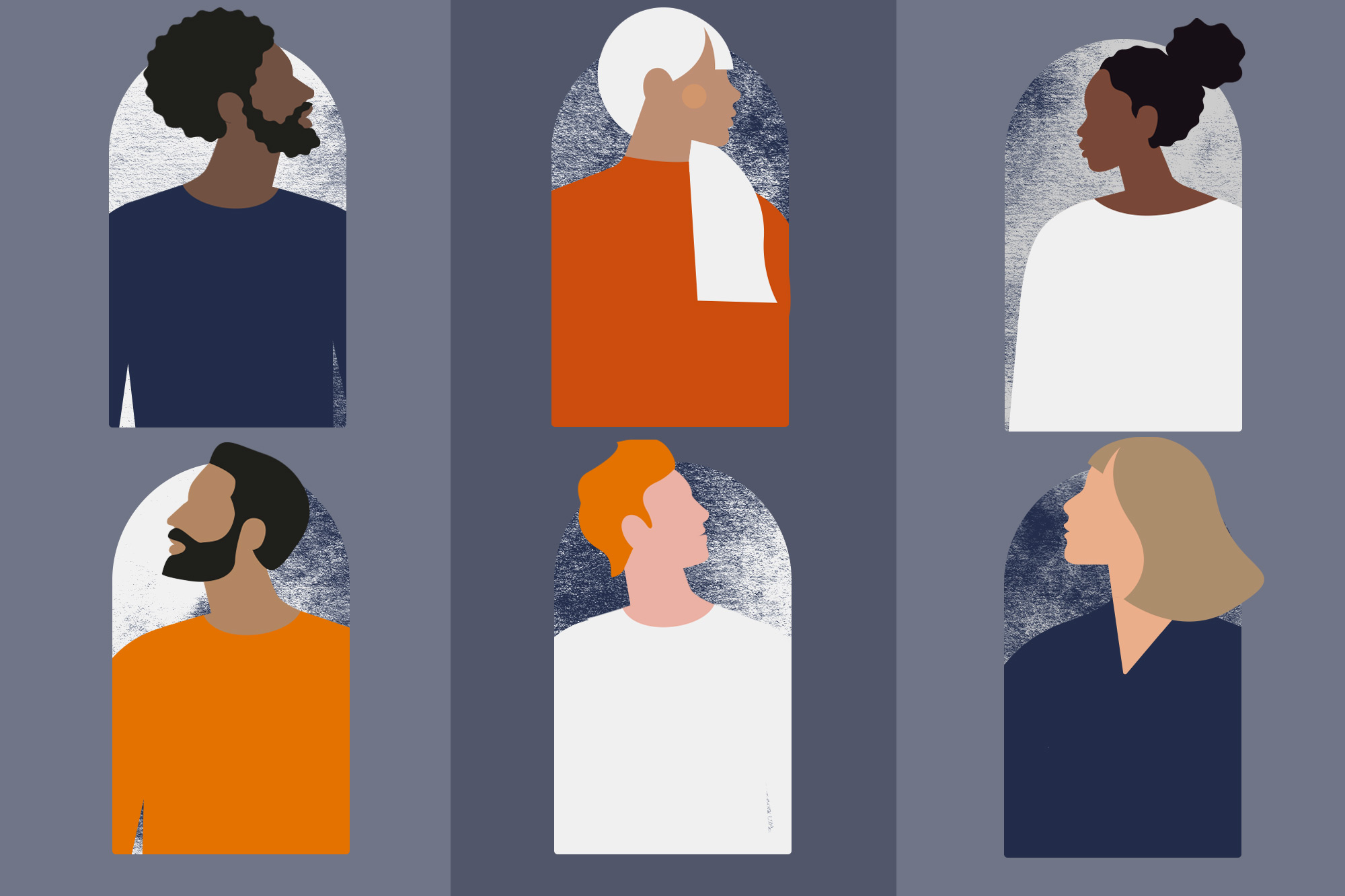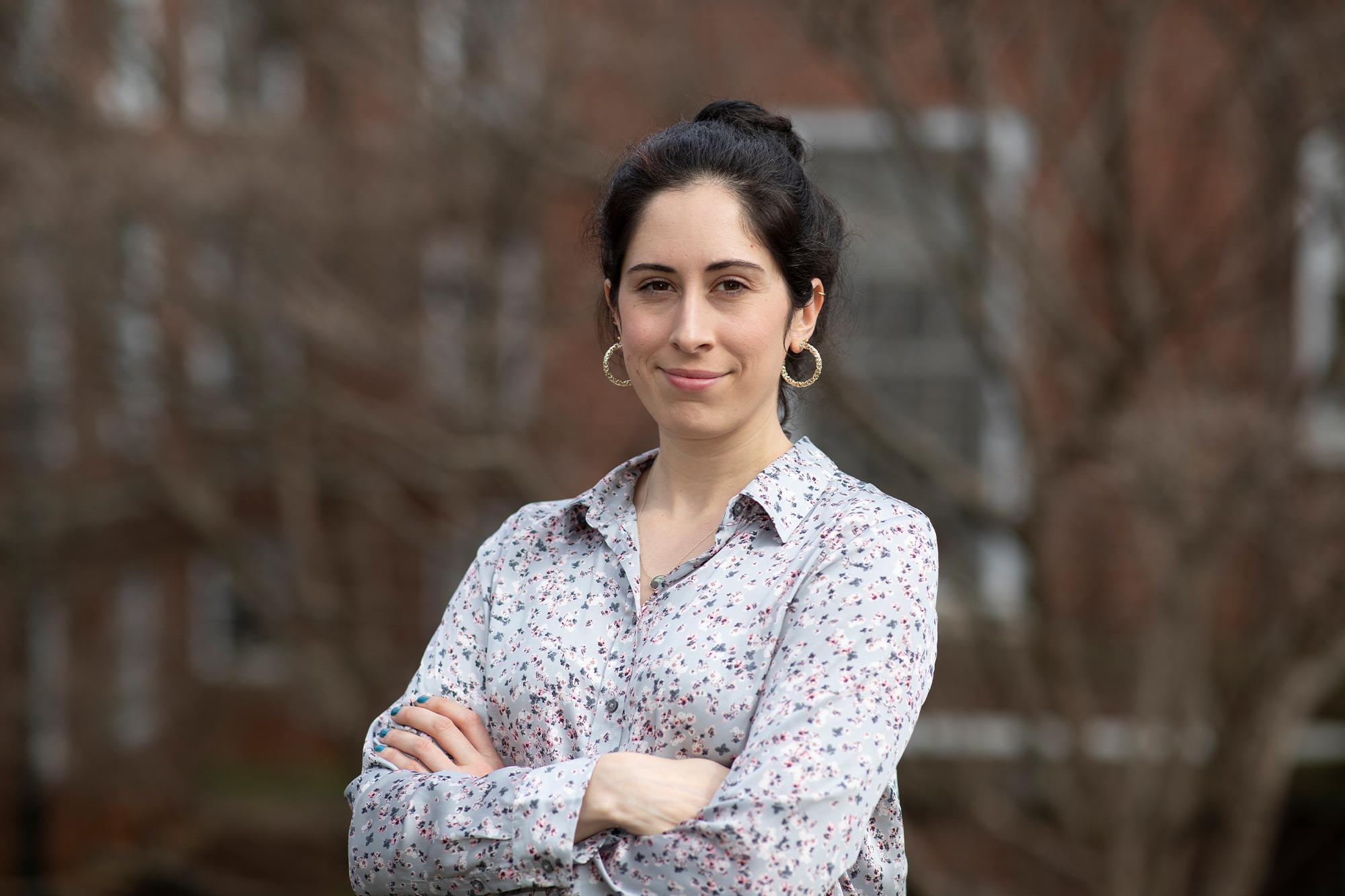
(Illustration by Emily Faith Morgan, University Communications)
It all started with a question: Does where you're from determine how good you are at making social connections in newly formed groups?
With this query in mind, Adrienne Wood, director of the University of Virginia's Emotion and Behavior Lab, dug into the social networks of more than 2,000 MBA candidates at a business school in the United States over a span of years.
Typically, Wood said, people tend to sort themselves into like groups. "We see this along almost any dimension that you could think of," she said. "People of the same gender, people of the same race, ethnicity, religion, socioeconomic background, geographic origin, personality and behavioral habits, like 'Do you smoke? Do you drink? Do you exercise?'
"So, within our MBA program, we see that international students tend to be friends with other international students," she said. "Men tend to be friend with friends with men, and women with women, and so on and so forth."
Some people are able to become friends with people from different segments of the population, they are "transcending differences and managing to find connections where other people might not have bothered or been interested in or been able to," Wood said. They become "social brokers," connecting otherwise unconnected groups.

Here's how the study worked:
Participants were given a "brokerage score," based on their connections to disparate groups. Wood's team found that the higher the person's score, the more likely they were from a diverse country.
International students from places with more present-day ethnic diversity and a history of extensive cultural intermingling were more likely to become social brokers than international students from less diverse nations. Domestic students' brokerage scores were also positively related to the ancestral diversity of the U.S. county they identified as home.
Wood said the findings are important because they show the inherent value in living in a culturally diverse community. "It gives you a wider social bandwidth," she said. "It makes you more adaptable and socially flexible, so that whatever situation you find yourself in, you'll be able to become connected."
Places Around the World
Wood's team quantified ancestral diversity in a couple of different ways.
"We did it separately for the American students and the international students," who made up about 35% of the test group, she said.
"With the international students, we asked about the kind of long history, migration [and] migratory patterns that led to their home nations' current-day population," Wood said. "Japan is a classic example of a place where most people who live there today descended from someone who lived in Japan 500 years ago. Whereas a place like Jamaica or Brazil or the United States, a lot of places in the Western Hemisphere, are made up of people who didn't live there 500 years ago. Our ancestors lived all over the world."
Social Brokers and Networking to Land That Job
Last month, LinkedIn, the world's largest professional network, released a massive study that found people are most likely to land a job using so-called "weak ties" - in other words, those people who may be the friends of friends, but not family or close friends.
Wood's new study, "Cultural Diversity Broadens Social Networks," published in the of Journal of Personality and Social Psychology, reinforces that finding.
"We know that weak ties - which are your acquaintances, the people that maybe aren't your best friends, but the people that you have in your phone contacts - are really important for networking for a job. And weak ties are probably the ties that make a person a broker," she said.
Wood said there is a lot of existing research in economics and sociology to support the importance of the counterintuitively named phenomena.
"I think if you can become a social broker, you probably have more diversified weak ties," she said. "If I'm friends with five people who all know each other and that's my social life, we have very redundant pieces of information. So, if there's a new job, they will have all heard about it."
Conversely, Wood said if a person has five friends who don't know each other, that person has five unique streams of information.
Insulated friend groups can also become echo chambers for bad behavior, like skipping class or doing drugs. "So it's really good for a lot of different aspects of your life to have a degree of brokerage," she said. "And one way to gain that is by getting comfortable with cultural differences and other forms of differences."






